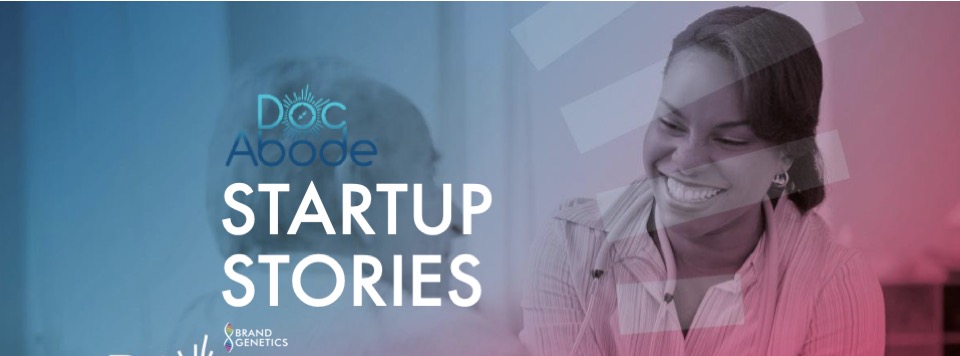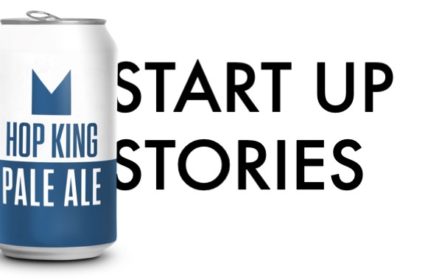Startup Stories: Doc Abode

This article is part of our series on Start up Stories. You can view the full series or download the report.
In this week’s blog, we speak to Doc Abode’s CEO, Dr Taz Aldawoud – a practising GP, and a former Digital Clinical Champion at NHS England. As an entrepreneurial GP, passionate about how digital health and technology can improve lives and reduce health inequalities, he started the patient care matching app in 2016, after successfully being awarded funding from the Yorkshire & Humber Academic Health Sciences Network. We recently found time to catch his thoughts on the world of insight and innovation!
Tell us a bit about Doc Abode, why did you get started and what is it that’s so unique about this brand?
Doc Abode was created to improve workforce capacity and resilience, in out-of-hours and primary care settings. Having anticipated what we now know as the ‘GP crisis’ we set out to create a software platform to support NHS organisations, widening their network via a flexible, sustainable and local clinical workforce.
Through an NHS provider control panel and a clinician smartphone app, the Doc Abode platform facilitates real-time clinician deployment, safely connecting a multi-disciplinary clinical workforce to NHS patient needs, based on availability, proximity and expertise. For clinicians, it provides a sustainable, motivating pattern of work, encouraging increased participation. For healthcare providers, it opens up access to a wider, more flexible workforce, improving operational resilience and efficiency, reducing clinical risk and minimising unscheduled hospital attendances. In addition, for patients, it delivers speedier, more personalised care, improving their experience and health outcomes.
In your view what is changing in terms of what consumers want, and how is Doc Abode responding?

We’re all acutely aware of the challenges that face the NHS now and in years to come, but what’s promising is the desire to drive forward the digital transformation of health and social care which will only become more prevalent with the recent introduction of NHSX.
For clinicians, there is a desire to support the NHS but, like most other industries, we’re seeing a move towards flexible working in the search for a better work-life balance, which Doc Abode facilitates. A recent study found that GPs are more likely to experience burnout than almost any other group of doctors, and with the increasing pressure to support out-of-hours care as well as in-hours, the proposition of working a 60+ hour week is not making this an attractive career proposition.
Meanwhile, patients often get frustrated with the NHS, as people demand immediacy in their everyday lives. In our very first pilot of Doc Abode, we saw a great improvement in response times for out-of-hours visits, which not only improves the patient experience but reduces clinical risk and potential A&E admissions.
How do you decide what’s next for Doc Abode – any guiding principles or approaches to insight and innovation?
Over the next five years, Doc Abode intends to build a national profile as a leading provider of integrated digital solutions for the NHS, harnessing artificial intelligence to support a contented and productive workforce, delivering superior efficiency for organisations and ultimately bringing more benefits to NHS patients.
We will evidence our effectiveness, value for money and return on investment through real-world evaluations along with exploring the wider health economic benefits of the platform with some of the country’s leading health economists.
In your opinion, what do you think the future looks like for your industry?
We’ve learnt along the way that technologies like us can’t be developed in isolation – we’ve taken a collaborative approach to development, bringing in partners where there is a mutual value exchange and shared purpose. Those that hide behind their proprietary technology and are unwilling to integrate into a wider technology ecosystem will ultimately fall by the wayside.
Healthtech is a fast-paced industry, and with that come many challenges, not least the governance of technologies that have the ability to impact on people’s health and wellbeing. At the moment, it seems that innovators are developing at a faster pace than regulation, so it’s important for organisations like Doc Abode to lead the way in open standards, demonstrating best practice and strong governance controls, to ensure that we pave the way for an integrated and inter-operable future within the NHS.
Finally, tell us about some brands that you find inspiring for Doc Abode from a marketing perspective? What stands out about them and why?
We’re often referred to as the ‘Uber for healthcare’ – and there’s no doubt that we take inspiration from disruptive brands of this nature. But those that really inspire us are those that place an emphasis on brand-driven storytelling – they compel us to want to know more about the organisation, and not just purchase their products or services. The brands that really stand out to me have a story about their social purpose – not just from a Corporate Social Responsibility (CSR) point of view to get more publicity, but with a deeper-rooted desire to link business goals with societal needs; for example, Toms ‘one for one’ policy, which saw them donate shoes, water or eye-care for every purchase made.
We have a vision to grow Doc Abode at pace and scale so that, once we are in a position to, we can pursue social causes that are close to our hearts and ensure we can provide sustainable, philanthropic and community-based services in addition to our commercial operations.
The Brand Genetics take
Doc Abode is a prime example of how to integrate the principles of positive innovation into a viable business model. Using the ARC of happiness (Autonomy, Relatedness, Competence), the business is able to empower its users, making their lives better and driving profits in the process.
By giving clinicians the ability to control their availability, the app provides both freedom and autonomy in an otherwise rigid industry. Similarly, by giving customised support – delivering a specifically matched respondent, they are set up to better deliver care, connection and relatedness. Finally, by putting control directly in the hands of users they are made to feel competent and ultimately empowered to deliver the care they need.
In conclusion, despite its clear tech focus, the app is able to deliver an incredibly humanising product – putting its users back in control; it’s clear why Doc Abode continues to disrupt the healthcare world!
If you want to find out how our agile innovation methodology can growth hack your business – get in touch today.


